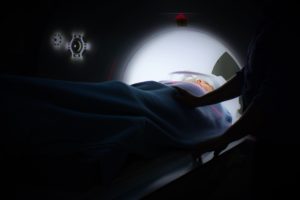 Stigma: A Mark of Disgrace Based On Belief in Certain Assumptions That Have No Factual Basis
Stigma: A Mark of Disgrace Based On Belief in Certain Assumptions That Have No Factual Basis
“He’s not depressed…he just needs to get up and get busy.”
“PTSD is just a fancy name for weakness. Get over it!!”
“Bipolar disorder? What an excuse for bad behavior! Get some discipline in your life and you’ll be fine.”
Sound familiar?
Comments like these are insulting, stigmatizing, and prejudicial. They hurt. And they have no basis in fact.
In this day and age, there is no excuse for them.
These are just some examples of the stigma expressed in hurtful words that serve to fuel shame in people who have depression, bipolar disorder, a trauma history, or who struggle with substance abuse.
Why Are Psychiatric Diagnoses So Hard for Some People to Accept?
Do you ever hear someone say, “Diabetes… ridiculous. Work harder and you won’t have trouble with blood sugar. I work hard and I don’t have diabetes!”
Or…
“Cardiovascular my foot! You’re fine. Get back to work.”
Probably not. Why is that?
Because there is no real stigma attached to malfunctions in the heart or the terrible sudden dysfunction in the pancreas of a child who develops Type I diabetes.
The more science learns about the human body, and its ailments, the more credibility those ailments have.
Why The Brain is Such a Target of Stigma
Except for one part of the body…. And that’s the brain.
Since ancient times, the intricate and complex functions of the brain have been steeped in mystery and wrapped in tales of fear, sorcery, and voodoo. All of this has contributed to the stigma that has hovered over people with psychiatric illnesses like a dark cloud of shame.
As recently as decades ago, patients admitted to psychiatric hospitals for behaviors their families didn’t understand were heavily drugged and incapacitated.
There is a population of individuals today who still stand by the opinions that reigned at that time…and they’re still influencing younger family members and friends with those erroneous views.
Stigma-busting Research
If you’ve faced stigma about your psychiatric symptoms from family, friends, or your job, we have some encouraging news for you. We both know that the expression of stigma is simply a sign of ignorance. Lack of up-to-date information underscores old and outdated beliefs. The best defense against stigma we see about psychiatric disorders is information — scientific information.
A recent study shows we can use a blood test to distinguish biomarkers in bipolar disorder that are different from those in schizophrenia. Investigators have also developed a blood test that could help doctors more quickly diagnose schizophrenia and other disorders.
This one detects certain types of inflammation and oxidative stress. Another test can differentiate 20 metabolites found in urine that distinguish schizophrenia and bipolar disorder.
Tests like these are building a foundation of what we would call biological proof for various psychiatric disorders — proof that they’re real, that there are underlying genetics for many and pathophysiology — how things go wrong — that is being worked out and understood in labs and universities and clinics around the world.
These are exciting times!
Neuroscience discoveries fight stigma .. .And the more we talk openly about the data points, the sooner we can dispose of the stigma.
HOPEFULLY.
If you know me, you know I abhor the term “mental illness” — a term that subtly suggests that psychiatric disorders are somehow different — maybe even less valid — compared to so-called “physical illness.”
This is just another way of perpetuating the myth… and the stigma… that psychiatric illness has less credibility.
The fact is, psychiatric disorders are just as physical as pancreatic disorders, or pulmonary disorders, or gastrointestinal. They’re just a lot more complex to see.
The brain is the most intricate, “multi-media” operating system in the human body. It is absolutely the “last frontier” in medicine. And it has as much credibility as any other body system…and is as real as Saturn or Jupiter…two planets we can see but can not yet touch.
operating system in the human body. It is absolutely the “last frontier” in medicine. And it has as much credibility as any other body system…and is as real as Saturn or Jupiter…two planets we can see but can not yet touch.
And if you’ve suffered from severe psychiatric symptoms, you KNOW how terribly real and concrete they really are. Because psychiatric disorders can encompass your whole body.
Neuroscience Discoveries Fight Stigma
So here’s another piece of scientific discovery that rips yet more of the stigma-fied rug out from under uninformed individuals who make hurtful and ignorant comments.
Millions of people are living today who remember when psychiatric disorders were blamed on poor parenting or even demon-possession. Thankfully, we’ve made light years of progress since then through the dedicated work of neuroscience.
In a commentary on many studies, published February 2018 in Biological Psychiatry, the authors explained discoveries made by researchers about micro RNA (miRNA) and how it plays a role in either improving or exacerbating symptoms of psychiatric illness.
One finding showed that a certain type of miRNA could be found in tumors; another type was found throughout the body serving a variety of purposes.
miRNA-9 is found most abundantly in the brain, while miRNA-21 is abundant in a variety of tissues in the body. miRNAs can regulate a multitude of genes throughout the body.
And certain miRNAs regulate processes in the brain, like synapses and the replenishing of brain cells, or neurons. They estimate that 60% of all genes are regulated by at least one miRNA …and sometimes by many.
Tight and Multi-layered Gene Control
When multiple miRNAs regulate the same gene, it allows for regulation of many layers of  processes and tight control of the protein “expression” of these genes. Genetic expression basically involves turning on the protein or RNA that the DNA creates to fulfill that gene’s blueprint.
processes and tight control of the protein “expression” of these genes. Genetic expression basically involves turning on the protein or RNA that the DNA creates to fulfill that gene’s blueprint.
This is how genes “express” themselves in the organism they are designed for. When something goes wrong in that process, it can lead to illness. In fact, improper expression of genes has been linked to pretty much every kind of illness or disorder across most of the body’s systems, such as cardiovascular, autoimmune, infectious, neurodegenerative, and psychiatric disorders.
So in the study of miRNA, researchers discovered that miR-137 regulates the maturing and differentiation of neurons, which has an impact on cognition and the physiology of the brain.
How about that?
miRNA and Neurogenesis
Another miRNA, miR-16 hinders the development and growth of neurons. Fluoxetine, an antidepressant, seems to decrease that hindering function, allowing more neurons to grow and thereby decrease depression.
Also, it seems to suggest that antidepressants that hinder or block the function of miR-16 increase growth of neurons in the hippocampus. Another plus!
And if fluoxetine can decrease those miRNA hindering functions, how much more so could IV ketamine treatment …right?
Neuroscience Discoveries Fight Stigma…
Well-meaning (but uninformed) adults in the ’60’s, ’70’s, and 80’s used to say “if mental illness is real, show me…where is it? Take a picture and show me!” These comments were even made by people in medicine. Shameful, really.
Stigma is such a terrible thing.
Well, the pictures are emerging. Concrete evidence is spreading.
And if you suffer with psychiatric symptoms…you don’t have to listen to those heartless comments anymore. There is a wealth of documented science that’s growing every day, every month, and every year.
Neuroscience Discoveries
I hear the things people say to my patients that cause deep hurt … that promote shame … that silence good hearts, and I’m struck by their courage to keep going. To fight stigma. To get well.
So, another point or two about miRNAs.
Various alterations, like the one accomplished by miRNAs to block the work of miR-16, have been linked to a number of psychiatric disorders. Researchers found this link in blood, postmortem brain tissue, and cerebral spinal fluid.
… And Another Discovery
Also, researchers have found that miR-132 is altered in the brain tissue of subjects in cases of schizophrenia and autism, and in the blood serum of subjects with major depressive disorder…as well as in animal models of depression and addiction.
Researchers think this may be due, in part at least, to the alteration of miR-132. Researchers suggest that this happens because of the role miRNA play in circadian rhythm or brain-derived-neurotrophic-factor (BDNF). We know (and love) BDNF. This protein has a clear role in mood regulation, cognition, and the growth of neurons.
Neuroscience Discoveries Fight Stigma
One last thought. This increasing knowledge about miRNA and how it can shape the causative factors of psychiatric disorders lays another row of bricks in the foundation of our understanding of the causes of different psychiatric conditions, and opens up new directions to improve treatment.
lays another row of bricks in the foundation of our understanding of the causes of different psychiatric conditions, and opens up new directions to improve treatment.
In addition, it’s further documentation that there are real cellular, biologic processes behind our diagnoses. And our treatments.
If stigma has intimidated you, take heart.
Neuroscience has your back.
Innovative Psychiatry Offers Advanced Treatment
And so do we. We see all forms of psychiatric illness here, and we work hard to find more effective ways to help you heal. At Innovative Psychiatry, we offer the most advanced and effective novel treatment options, like IV ketamine treatment and transcranial magnetic stimulation (TMS), along with medications, adjunctive help with nutrients like curcumin, and strategies to strengthen your microbiome.
To date, IV ketamine treatment rises above all other forms of treatment for many individuals who’ve been failed by traditional treatment.
If you suffer from depression, anxiety, cocaine or alcohol use disorders, PTSD, OCD, bipolar disorder, or suicidal thinking… and have not been helped by medications, call us. We’ll work together to determine the best treatment to help you live a productive, joy-filled life again. Build relationships again. Enjoy your favorite interests again.
 To the restoration of your best self,
To the restoration of your best self,

Lori Calabrese, M.D.
